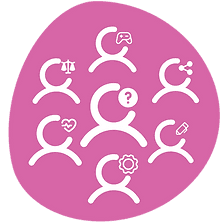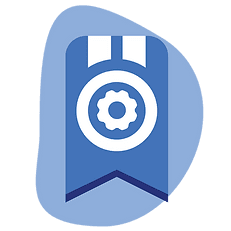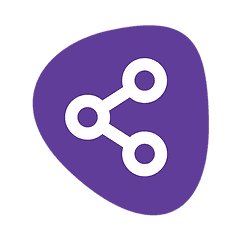Jan 14, 2025•6 min read•
Specialization in the Translation Industry
Translation is a complex undertaking requiring more than just language skills. Due to the diverse and technical nature of content, specialization has become essential for professional translators. This article explores why specialization is crucial for accuracy, clarity, and efficiency, and details the primary fields of translation—technical, legal, medical, marketing, video game, and literary—along with the specific skills and experience required for each.

Translation is a complex undertaking and so translation professionals require multiple skills. Language skills alone are not enough to become a successful translator.
Translation can involve working with specific, technical and complex content related to diverse fields. A deep understanding of the concepts and terminology of those fields is essential. But it would be impossible for any experienced translator to become an expert in every industry, field or subject.
For this reason, most professional translators specialise in one or a small number of fields. Indeed, in recent years, specialisation has become almost essential.
Why has specialisation become so important?
We live in an ever more connected world in which businesses are increasingly trading overseas and in which online content is aimed at wider and wider audiences.

There are more and more subjects to learn about with comprehensive understanding. No individual could acquire in-depth knowledge of every area. The availability of information online and the ability to market internationally has intensified competition in the translation industry. It is now crucial to offer the highest standards of work and those standards are only achievable through specialization.
Each industry or field boasts its own unique terminology, concepts and practices. Specialised translation providers can ensure that material is translated with greater accuracy and clarity. They understand even the most nuanced content and can handle it appropriately.
By focusing on a specific field, a translator can ensure that they keep up to date with changes and advancements in that relevant field. It would be beyond any translator to remain abreast of developments in multiple industries.
It is also worth noting that our fast-paced world has resulted in the need for speed when translating. Translators must produce accurate work and they must also deliver their work quickly. The better a professional understands their subject, the quicker they can translate any related material. When they already possess the specialist knowledge required to work on content, the need for research is reduced and translations can be completed in less time.
Expert knowledge and experience are certainly the keys to both accuracy and speed. There is no substitute for specialized translation in the translation business.
Translation specialisms
Translators usually choose to specialise in broad translation fields such as legal, technical or medical. But they may also develop specialisms in specific aspects of those fields or in niche subjects.

When it comes to selecting a specialism, translators would usually choose industries in which they have worked and that they already know well or subjects that they have studied in some depth. Translators can then develop their knowledge and will continue to enhance their understanding of the field in question.
It is important that translators are interested in the subject in which they intend to specialise as they must be motivated to continually work on projects and to remain informed.
Which translators are best suited to each translation field?
There are numerous translation fields in which translators could decide to specialise, each demanding a unique combination of attributes. Below we identify the principle translation fields together with the skills, experience or qualifications required to specialise in those fields.
Technical translation
Technical translation is the practice of translating technical documents and content. It encompasses diverse industries including engineering, information technology, aviation, shipping, automotive, energy generation and construction.
Many translators who focus on technical translation will specialise in specific aspects of the work such as translating material related to civil engineering projects or aircraft.

Technical translation inevitably involves tackling highly complex terminology and specialised texts. Errors or ambiguities would often have serious consequences. For example, the mistranslation of an aviation manual would have serious safety implications while errors in a contract could lead to legal disputes. The use of Translation technology such as CAT tools may mitigate the risk of mistranslation but only to a certain extent.
Qualifications, experience and skills required for technical translation:
- Degree in mechanical, electrical or civil engineering
- IT related degree
- Extensive work experience in a relevant industry such as aviation
- Excellent attention to detail
Legal translation
It is clearly imperative that legal translators deliver accurate outputs. Legal translation involves dealing with non-literary translations (contracts, tenancy agreements, court documents, witness statements, immigration documents and patents). Translations must retain the purpose and intent of the official documents and be both clear and unambiguous. Errors could lead to legal disputes, loss of business or deportation and more. Legal translators are usually required to certify that their translations are true and accurate.
Legal translators should have in-depth knowledge of the law in the territories involved. They should certainly be familiar with the various characteristics of legal systems in general.
Qualifications, experience and skills required for legal translation:
- Degree in law
- Experience of practicing law or working as a paralegal
- Experience of working as a legal secretary
- Experience of working as an immigration official
- Excellent attention to detail
Medical translation
Medical translation is the process of translating medical documents and content. It's a highly specialized field that can include the translation of medical reports, patient records, healthcare manuals, research papers, applications for regulatory approval, instructions relating to drugs, and test results.

Clearly, translation errors in the medical field can have serious consequences. Accurate translations are vital to ensure medics and patients understand treatments and risks. Patients must be able to provide informed consent and must understand how and when to take medicines.
Qualifications, experience and skills required for medical translation:
- Degrees in medicine, nursing or pharmacology
- Experience of working as a qualified doctor, nurse or pharmacist
- Experience of working in medical research
Marketing translation
The translation of marketing materials may include tackling websites, social media posts, brochures, email campaigns, video scripts, advertisements and more. Marketing translation is important as the success of businesses and brands may depend on the quality of the marketing messages produced.

There is a creative element to marketing translation and so this work differs greatly from legal or medical translation where accuracy and the use of the correct terminology are paramount. Marketing translation will often involve the localisation of content to ensure that messages are understood by the target audience and appeal to the cultural preferences of that audience.
Qualifications, experience and skills required for marketing translation:
- Degree in marketing
- Experience of working in marketing
- Experience of working as a journalist
- Creative writing skills
- Flair and imagination
Video game translation
Games must be adapted to suit players in different territories. It is often necessary to localise the graphics and sound effects. Video game translation is the process of translating the dialogue and written content of video games including instruction manuals.

It is a highly specialised practice as the translation process requires professionals to maintain the meaning of the original content and localise it to the target culture or target language. The original cultural references, puns and idioms may not be appropriate for the new territory. In addition, there are often limits on the number of words or characters translators can use. This certainly creates an additional challenge. For these reasons, there is a creative aspect to the work.
Video game translators may need to work closely with producers, graphic designers and sound engineers to complete their projects.
Qualifications, experience and skills required for video game translation:
- Degree or equivalent qualification in media studies, film production or screenwriting
- Extensive experience of playing games and enthusiasm for games
- Experience of working in video game production
- Experience of screenwriting
- Creative writing skills
- Imagination
Literary translation
This field of literary translation demands a unique skillset as it is a linguistically complex and highly creative endeavour. Translators must possess the ability to maintain the meaning, style, feel, structure and tone of an original work to evoke the appropriate responses in the new audience.

Translators may need to work on novels, short stories, poems or plays. The translation of each of these literary forms requires specific talents and so literary translators often specialise in a particular genre.
Translators need to understand the many and varied socio-cultural contexts of literary works, the time periods involved and the geography. They must strike a balance between accurately rendering the context of the original piece and conjuring the language, settings and references that the new audience can relate to.
Qualifications, experience and skills required for literary translation:
- Degree in literature, comparative literature or creative writing
- Creative writing skills
- Being a published writer of novels, poems or plays
- Experience of teaching literature or creative writing
- Experience of editing literary works
Horses for courses
It is easy to see that specialization is essential if translations are to be of suitable quality. Translators must boast enthusiasm for their specialism as they will need to keep themselves up to date with industry developments, new technologies, cultural shifts and changes to the law.
Finding the right arena to work in isn’t merely a matter of knowledge and experience. Professional translation can also demand creativity, imagination and flair. Cultural understanding is crucial when translating creative content while attention to detail would be more important when tackling technical specialised texts.
At Word Connection we assign projects to translators who boast the linguistic skills required together with the appropriate industry knowledge, creative skills or general approach to their work. You wouldn’t ask an engineer to write a novel for you or a journalist to build you an aircraft. We wouldn’t ask a screenwriter to translate a legally binding contract.

Categories
- Export to Japan
- Blog
- Transcreation
- Japanese Proofreading
- Technology


